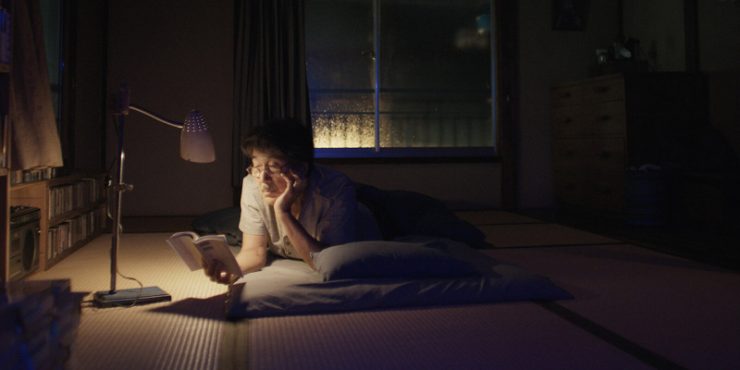If happiness is measured by our reality divided by our expectations, then being content should be as simple as following that equation. This seems to be the case for Himayama, the protagonist of Perfect Days, the latest film from the German director Wim Wenders. Himayama is played by Koji Yakusho, an actor of great stardom in Japan who also has expansive international credits. His performance in Perfect Days will break you down if you’re not careful; a gentle but heartbreaking portrayal of a man whose rote, uneventful existence is the source of great happiness. Not everything is perfect for Himayama. Despite his best efforts, he still falls victim to the various pitfalls that encompass the human condition, but Wenders’s film is in many ways about his unbreakable resilience and learning to accept the beauty that’s all around you.
Himayama works for the The Tokyo Toilet, a public toilet system with several high-end stalls (franchises, if you will) across the metropolitan area. He wakes up at dawn every day and travels to numerous locations and cleans them. His work is disciplined, methodical, unglamorous. He’s sensitive to patrons, and will drop whatever he’s doing to let them use the facilities – these same people are seldom as sensitive to him or his workspace. Himayama seems more motivated by personal pride than by professional obligation, and his commitment doesn’t feel like unhealthy work-life imbalance. Every moment spent not working is spent absorbing the culture around him, whether that be listening to tapes of classic Western rock in his van between stops, reading books until the very moment he falls asleep, or taking pictures of various trees on his lunch break.
The serene way in which Himayama floats through life gives one an impression of unflappability, the kind of personality that’s ripe to take advantage of. This is occasionally the case with his younger co-worker, Takashi (Tokio Emoto), who’s work ethic is weak on its own but is especially so when compared against Himayama. Takashi’s interest in a girl (Aoi Yamada) supersedes everything at his job, and the ultimate irony is that she ends up being more interested in Himayama’s tape collection than in the immature Takashi. As burdensome as he may be, Takashi is a part of Himayama’s routine, and it’s the routine, more than anything else, that appears to be what brings Himayama his stability. It’s only when this routine is interrupted – sometimes by chance, sometimes by intrusion – does the facade begin to wear away.
Wenders wrote the script with Takuma Takasaki, and they give us the slightest glimpses of an unhappy past. There’s a niece named Niko (Arisa Nakano) who appears out of nowhere. She’s run away from home and decided to stay with her estranged uncle. She dares to ask why her mother seems irritated when talking about him, but Himayama doesn’t give any concrete answers. There’s mention of a strict father that he hasn’t spoken to in a very long time. Whatever lingers in his memory is enough to force him into a life of constant action, no matter how menial; an existence that gives him little room for pondering the past, but still gives him the chance to appreciate the present. His behavior, wordless and compulsive, is that of a man in recovery, whose every moment is spent repairing the emotional damage of what came before.
So Himayama’s days are not perfect because of what happens. Nothing much happens, after all. But are instead perfect because of what doesn’t happen. There are no relapses into despair, no lapses in judgment. Yakusho’s performance, so perfectly measured with so few words, is something of a miracle. His image of contentedness doesn’t feel addled by unrealistic optimism or mania, but is instead a man actively working toward his own happiness. The stigma of cleaning toilets isn’t lost on him, and he sees how everyday people view him because of it, but he’s chosen acceptance over bitterness, poise over anger. In a scene late in the film, he speaks with a man who is terminally ill. The sick man asks a benign question and Himayama turns it into a game. It feels like he’s spent a lifetime making play out of anguish and he’s developed a talent for it. But it’s a talent that needs sculpting at every moment.
Directed by Wim Wenders










